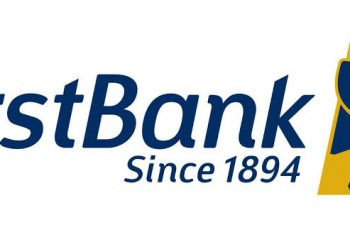What You Should Never Put On Your CV
Here i will be telling you What you should never put on your CV while applying for a job. The earlier you know that most employers only take a quick look or glance at your CV before moving to the next one, the better for you.
You should know that people in charge of reviewing your resume only take a very quick glance at it before they move on to the next one; hence this post will let you know that the very little mistake you will make on your resume will totally send it into the trash box, and into the recycle bin if it’s in soft copy. Therefore, you must set up and arrange your resume in a way that looks perfect without any bit of unprofessionalism in its content.
do you know What You Should Never Put On Your CV?
There are simply certain things that many people incorporate in their resumes that simply have no place – to many, not including these things may seem like common sense but many still continue to add them in. Here are some things to NOT include in your resume.
- Private Information
Private information includes anything beyond your contact information which includes phone numbers, e-mail, and address. Things like marital status, age, race, ethnicity, etc.; simply put, it’s anything that could be used to discriminate against you. Also Photographs are another item in this criterion you want to stay away from incorporating. You must take good note of this.
- Irrelevant Work Experience
This is a tricky scenario; on one hand, displaying experience in various avenues could work well for you as it will make you look versatile, but on the other hand, placing it in to fill in the empty space will only work against you. How? Because:
(1) It will present you as a bad employee since your employer will be wondering why you have worked in so many places, This will make him ask you whether you were sacked from your old job or you just decided to quit. Now you know it won’t look good if you tell him you were sacked, Hence he will see you as someone who will dump the company if you find a better and higher paying job just the same way you dumped your former job to the current one.
(2) Putting The best way to go about this is to only include your 2-3 (great) experiences from your recent past; if you are of a significant age, say 30, and you’ve had numerous jobs since you were the age of 18, then you simply want to stay away from inserting the early job experiences you may have had. You can discuss your past experiences in more detail if/when you get asked about it during the face to face interview.
- Unprofessional E-mail Address
You know that particular email address from your younger days that you can’t let go? Hmm, you must let it go when it come to employment/job/business/professional issues. E-mail addresses like charmy_girl swag@blah.com is not a phrase your potential future employer wants to see. Stick to the basics; simplify your email address to your proper name and a decent domain name. I have ignored a mail asking for a job to be a writer here on this website, just because the e-mail name is bad. Instead I advise you have two email addresses, one for Personal use and the other for business/official use.
- Current Business Contact Information
Let’s assume that you are the owner of a company and someone you employed is using his/her office line to answer a call of another boss asking him/her to come for a new job. That weird right? And I guess the next thing that will come you’re your mind it to fire the employee right? You must know that Jumping from one job to another is an experience that will be faced by most people. But, the last thing you want to do is make your current employer aware of your intentions. This could be your office e-mail ID and office phone number – most employers can access all your office emails and receiving a phone call from a potential future employer while you are at work is like asking to be fired.
- Salary Information
Recently, Salary information is mostly discussed when you have been called for a face to face interview. Including this information on the resume used to be quite a thing but it’s considered repulsive by today’s standard. Most jobs you will be applying to will display how much they are offering right from the get go notification or advert. So for you to have your desired salary in your resume just comes off as arrogant. The chance to negotiate your desired salary can only be finalized during the interview so save this conversation for then. Only include it if it is asked!
- Boring Fonts
The main idea behind this tip is to avoid using the overly typical sans serif fonts; these are your Arial and Helvetica. Many recommend using Times New Roman but this font is now overly used and too commonly seen. Calibri, Garamond, and Georgia are a few great professional alternatives worth trying out instead. If you check well, here in gtpedia.com, I mostly use CALIBRI font with a spacing of 1.5.
- GPA
I must tell you, That the recent employer now does not pay much attention to you GPA, what employers really care about is how productive you are depending on how bold, smart, interaction and your communication during face to face interview. For the most part, you do not want to include your GPA in your resume; there is however one exception. If you have just recently graduated, then of course it makes sense to include your GPA, but, only include it if it is higher than 3.8. If you have worked a few years after graduating and are looking to switch jobs, there is simply no need to include your GPA. Employers really only care about the most recent of your endeavors and most likely will not care about your college performance and including it makes it seem that your still stuck in the past (the glory days).
- A Bad Objective Statement
This is where you need to get your employer, so make the best and maximum use of this section in your resume. The decision over whether a resume should have an objective statement has been debated for quite some time now. But, if you are planning to place it, then it is best you write the best one possible and not some lousy filler. Two important things to keep in mind: 1) don’t sound overly confident and 2) make it about what you are bringing to the company vs. what you plan on getting out of the job. Objective statement is practically the first thing your potential employer will look at, and if it doesn’t win them over, then it’s the last thing they will read from it.
- Unrelated Hobbies
Make sure you avoid all unnecessary hobbies that ha nothing or no relation with your job. This is tip is more for those who feel compelled to incorporate hobbies that have nothing to with their field what so ever. For example, if you are into photography/graphics design and you’re applying for a job in journalism field, then yes, by all means, incorporate links to your photography/media related portfolio in your resume. But, leave all unnecessary – inapplicable – hobbies out your resume. Hobbies like Clubbing, Swimming, Dancing, Parting, making friends, etc must be given a second thought before putting them in your resume to avoid your future employer seeing you as an unserious and Fun hunting employee.
- References
In a lot of situations, a reference (good or bad) can be a major decisive factor in whether you will be getting hired or not. Many people like to include “References available on request”; this is not necessary either because interested employers will ask you for such information if they are interested. The reference portion of your resume is simply unnecessary in today’s day and age; if you are asked about presenting a few references, think of it as a good sign that your employers are interested in you.
- Bad Grammar
make sure you know What You Should Never Put On Your CV. There is a big difference between bad grammar and typographical error.
Example of a Bad grammar is “Jason and Smith is good friends and have been good with playing football”
Example of a typographical error is “Jason and smith are gud friends and have bin gud at playing football.
Proofreading your resume is a must! Don’t just check for errors yourself; show it everybody you know of that is good with the language. It should go without saying, but many people often submit their resumes without verifying it a few times before submitting and the result is a quick dismissal.
if you like this post, Please share and let us know what you think by commenting.


nelson
I read, I laughed, I learned!!! Thank you so much.